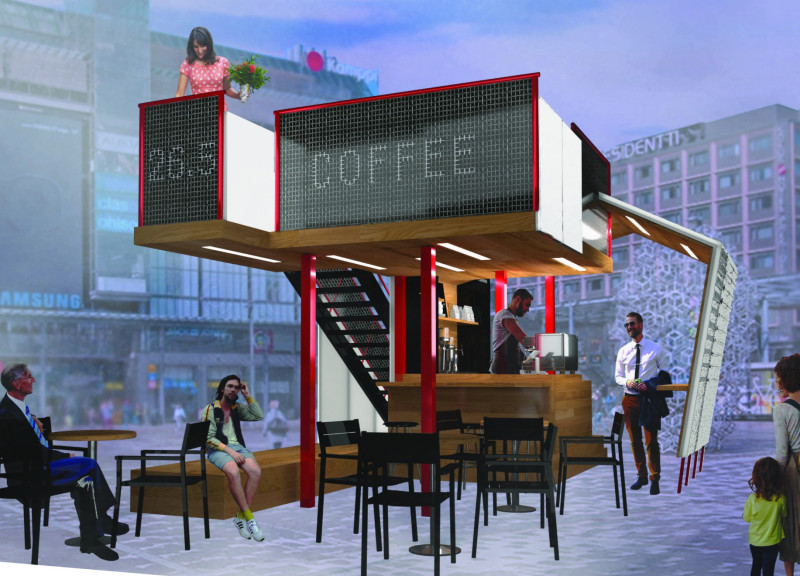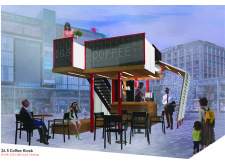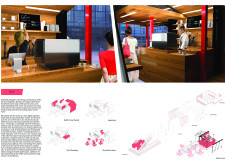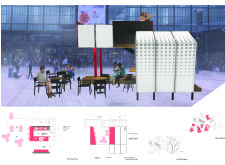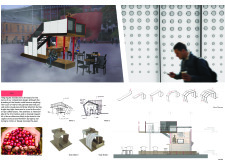5 key facts about this project
Unique Architectural Expression
The design distinguishes itself through a thoughtful consideration of materials and structural elements. The use of backlit Corian panels allows for dynamic branding opportunities while contributing to visual appeal. Metal mesh elements provide structural integrity and facilitate ventilation, merging practicality with aesthetics. Additionally, the prominent use of bright red painted steel as structural support and railings captures attention and adds vibrancy to the kiosk, making it a notable feature in the surrounding area.
The integration of wood paneling introduces warmth, contrasting with the industrial components and providing a welcoming atmosphere. Clear glass walls enhance connectivity between the interior and exterior, fostering a sense of openness and engagement. Furthermore, the incorporation of photovoltaic film underlines a commitment to sustainability, highlighting the project's alignment with contemporary architectural practices focused on resource efficiency.
Innovative Functionality and Community Focus
The architectural layout features a two-level design that enhances user experience. The ground floor serves as the primary coffee service area, while the upper level offers outdoor seating with views of the street, inviting visitors to linger and socialize. This strategic arrangement encourages community interaction and positions the kiosk as a social hub. The flexibility of the space also allows for adjustments based on traffic flow and customer needs, accommodating various events and activities.
The design's emphasis on transparent elements not only promotes visibility but also encourages spontaneous interactions among patrons, reinforcing the role of the kiosk as part of the urban landscape. By prioritizing community engagement, the 26.5 Coffee Kiosk stands out as more than just a retail outlet; it embodies a space where social ties can form and flourish.
For a comprehensive understanding of the 26.5 Coffee Kiosk project, readers are encouraged to explore architectural plans, sections, and detailed designs. By delving into these architectural elements, one can gain deeper insights into the design ideas and functionalities that make this project relevant in contemporary urban architecture.


